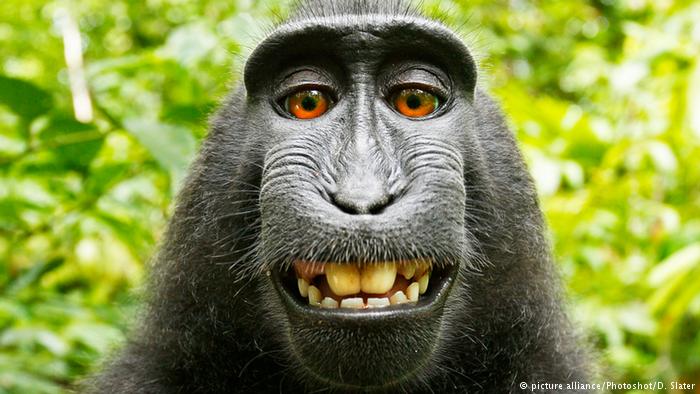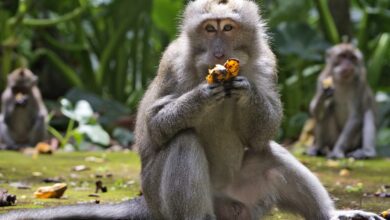
Years after a macaque monkey snapped a viral selfie in Indonesia, a US court rejected a suit by PETA to name him copyright owner. The judges said PETA was using the animal as an “unwitting pawn” for their agenda.
A US appeals court sided with photographer David Slater in a years-long legal saga around a grinning photo of a black monkey that became an internet sensation in 2011.
The monkey, named Naruto, snapped several photos on a camera set up by Slater, prompting the activists from the People for the Ethical Treatment of Animals (PETA) group to file a lawsuit on Naruto’s behalf. In it, they demanded the monkey to be declared the real owner of the images.
The three-judge panel in San Francisco, however, ruled that animals cannot sue for copyright infringement.
Court slams PETA
Naruto “lacked statutory standing” for such legal move, they said, as the law reserved that power for humans. The appeals court also said PETA had failed to establish a significant relationship with Naruto and therefore had no grounds to legally present itself as “next friend” of the animal. In the US, the term “next friend” is usually reserved for plaintiffs suing on behalf of people who cannot represent themselves.
“Puzzlingly, while representing to the world that ‘animals are not ours to eat, wear, experiment on, use for entertainment, or abuse in any way’,” the 9th Circuit court said, “PETA seems to employ Naruto as an unwitting pawn in its ideological goals.”
The court also ruled photographer Slater was entitled to be compensated for attorneys’ fees in the case.
Naruto is ‘discriminated against’
PETA sued Slater on behalf of Naruto in 2015, claiming he had no right to profit from the monkey’s work. After their claim was dismissed, they appealed, but subsequently reached a settlement with Slater in September last year. Under the terms, Slater agreed to donate 25 percent of any future revenue to charities protecting black crested macaques.
In a rare move, the appeals’ court refused to accept the lawyers’ demand to throw out the case. The judges said a decision in this “developing area of the law” would be useful to guide lower courts in the future.
Commenting on the Monday verdict, PETA’s general counsel restated that Naruto “shouldn’t be treated any differently from any other creator.”
“Denying him the right to sue under the US Copyright Act emphasizes what PETA has argued all along — that he is discriminated against simply because he’s a nonhuman animal,” Kerr said in a statement.
The attorney added that PETA has not yet decided if it would appeal the latest ruling. At the same time, Kerr said the decision would not affect the settlement.




